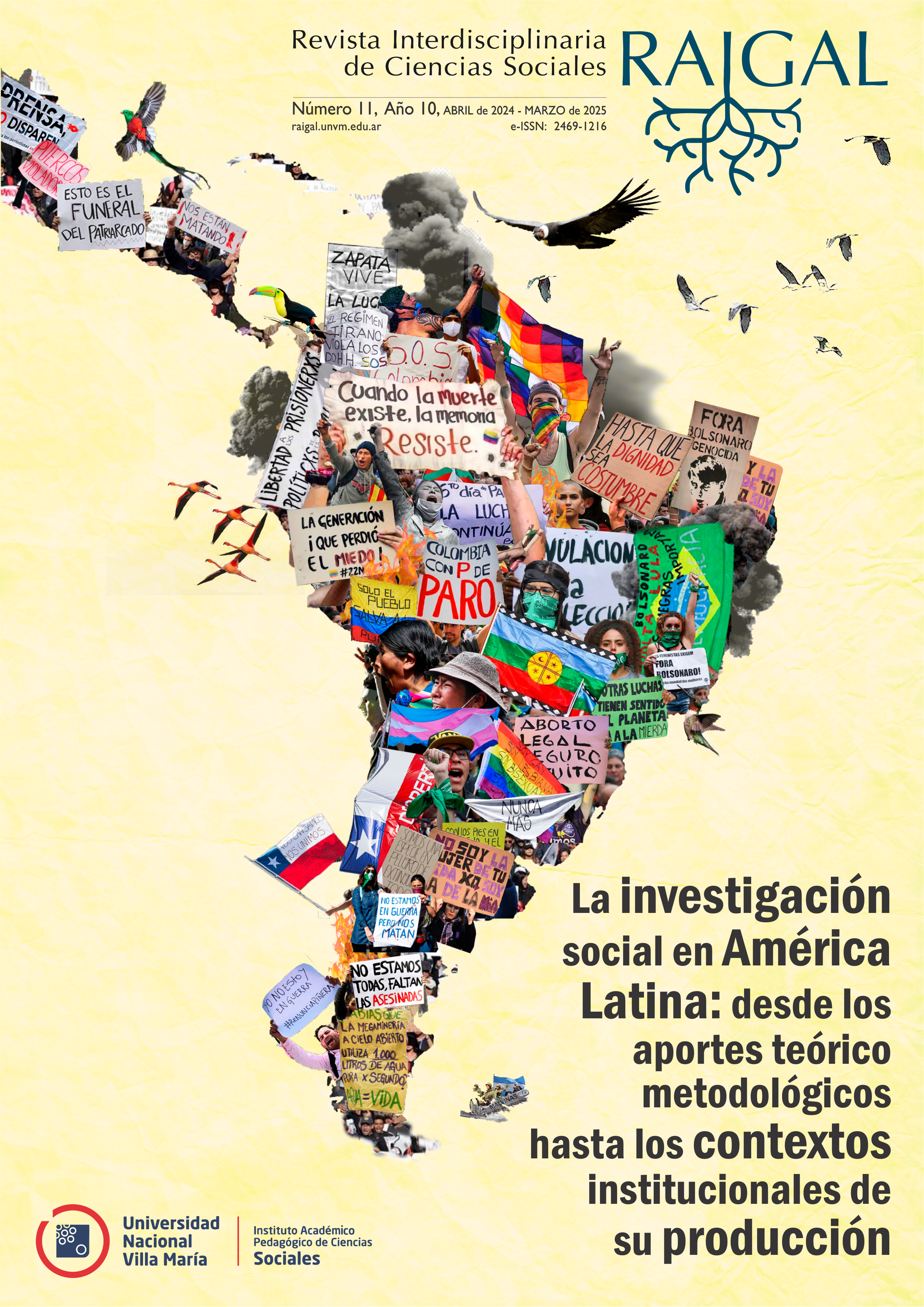Ser Emprendedor en la sociedad 4.0
la implicancia de la regulación emocional, estudio de campo de emprendedores en la provincia de Córdoba, Argentina
Resumo
El emprendedurismo en Argentina viene creciendo exponencialmente desde la crisis de 2001. En los últimos meses con la llegada de la Libertad Avanza al gobierno y las políticas de ajustes que se vienen sucediendo, se ha visto un incremento en el campo del emprendedurismo, que incluyen a personas que trabajan bajo dependencia y no logran llegar a fin de mes, emprendimientos que realizan utilizando herramientas digitales. Esta situación ha llevado a que cada vez más personas deban adaptarse a las condiciones estructurales del trabajo digital en la sociedad 4.0.
La sociedad 4.0 se caracteriza por la digitalización y la automatización de los procesos productivos. Esto ha generado una transformación del tiempo y el espacio del trabajo, lo que ha llevado a la aparición de nuevos saberes prácticos para el desarrollo de tareas generales. Esta nueva corporalidad ha dado lugar a la necesidad de adquirir habilidades que permitan adaptarse a las exigencias de la sociedad actual Scribano y Lisdero (2019).
Este trabajo busca profundizar acerca de la relación que se da entre los emprendedores y emprendedoras que han debido adaptarse a las condiciones estructurales del trabajo digital en la sociedad 4.0 y visibilizar las herramientas de regulación emocional observadas.
Palavras-chave:
regulación emocional, sociedad 4.0, herramientas digitales, redes sociales, emprendedurismoLicença
Copyright (c) 2025 Heidi de Lourdes Raimondo, Andrea Palma Isla

Este trabalho está licenciado sob uma licença Creative Commons Attribution 4.0 International License.
Downloads
Referências
De la Garza, A. G. (2013). Trabajo atípico: Perspectivas globales y latinoamericanas. Universidad Autónoma Metropolitana, Unidad Xochimilco, México.
Dubar C, (2001). El trabajo y las identidades profesionales y personales. Revista Latinoamericana de Estudios del Trabajo, v.7, n. 13.
Dubar C, (2002). La crisis de las identidades. Barcelona: Ed. Bellatorre, 2002.
Geiser, Marcela. Identidad, subjetividad y sentido común en sociedades complejas. México, D.F.: Juan Pablos, 1997.
Han, B.-C. (2010). La sociedad del cansancio. Barcelona, Herder Editorial.
Hidalgo Proaño, L.., (2015). La cultura del emprendimiento y su formación. Estudios del Desarrollo Social: Cuba y América Latina, 3(2), 1-8.
Lazzarato, M. (2010). Conferencia internacional: capitalismo y producción de subjetividad. II Congreso internacional de investigación y práctica profesional en psicología. Universidad de Buenos Aires. Argentina. 24 de noviembre de 2010. Recuperado de: http://www.youtube.com/watch?v=5JNQ2pzOcnY
Kirk, J.; Wall, C. Work and Identity. London: MacMillan,2011.
Quattrini, D. (2017). Gestión emocional y competencias laborales en la empresa 4.0. Recuperado de https://www.researchgate.net/publication/317584908_Gestion_emocional_y_competencias_laborales_en_la_empresa_40
Rodríguez Sutil (2013). Qué es una Emoción. Revista Electrónica de Psicoterapia. IARPP España.
Sadin E. (2013). La humanidad Aumentada, La administración digital del mundo. Caja Negra Editora. Buenos Aires, Argentina
Scribano, A. y Lisdero, P. (2019). Las prácticas de trabajo en la sociedad 4.0. Revista De La Facultad De Derecho De La Universidad Nacional De Córdoba, 47, 61-82.
VandenBos, R. y American Psychological Association (2006). American Psychological Association Dictionary of Psychology. Washington, D. C.: American Psychological Association.






 Estamos presentes em...
Estamos presentes em...





